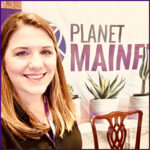Mainframes have stood as the bedrock of critical business applications for decades, boasting unmatched reliability and security. However, technological progress compels organizations to modernize their IT infrastructure without moving away from the mainframe. Legacy systems, while robust, may impede agility and innovation. To meet these challenges, companies have shifted their focus to mainframe modernization which is powered by new methods and technologies. A few of the prominent ways companies are able to breathe new life into mainframe environments while preserving their invaluable legacy are:
Application Programming Interface (API) Integration:
API integration is a powerful method to modernize mainframe systems while preserving their core functionalities. Exposing mainframe services and data through APIs facilitates seamless communication between legacy applications and modern technologies. This empowers businesses to develop new front-end applications and services that interact with the mainframe backend in real-time. API integration brings flexibility, enabling organizations to embrace new technologies and stay relevant in today’s interconnected world. Recently, the Virtual Db2 User Group hosted a session on Db2 for z/OS and REST Services which detailed the advantages of APIs with Db2 and next month, James Alexander of Broadcom will present on Using CICS Artifacts to Build Web Service APIs.
Web and Mobile Enablement:
Web and mobile enablement extends mainframe applications to web browsers and mobile devices. By adopting modern web development frameworks and responsive design principles, businesses provide users with a user-friendly experience across various devices. This approach leverages existing mainframe applications but transforms the user interface, making it more intuitive and appealing to modern users. Incorporating the user experience into your modernization plans can be vital to your talent acquisition strategy.
Data Virtualization:
Data virtualization enables organizations to access and manage data from multiple sources, including mainframes, in a unified manner. This approach eliminates the need for complex data migrations and creates a virtual layer that abstracts data from its source systems. Data virtualization allows for real-time data access, enhancing decision-making capabilities without disrupting the mainframe’s core operations.
Service-Oriented Architecture (SOA) and Containerization
SOA is an architectural approach that involves breaking down mainframe applications into smaller, loosely-coupled services. These services can be reused and orchestrated to build new composite applications that fulfill specific business needs. Containerization allows mainframe applications and services to be packaged into isolated and portable units (containers). These containers can include the necessary runtime environment and dependencies, making it easier to deploy and manage mainframe workloads across different environments, both on-premises and in the cloud.
The adoption of SOA and containerization on the mainframe can lead to various benefits, such as improved agility, easier scalability, and simplified management of mainframe workloads.
DevOps Integration:
Integrating DevOps practices with mainframe development streamlines development and deployment processes. DevOps fosters collaboration between teams, leading to faster development cycles and quicker responses to changing business requirements. DevOps integration enhances mainframe development without the need for migration. CI/CD and DevOps ranked #1 and #2 in a recent Insights for Mainframe Leaders survey.
In conclusion, mainframe modernization without migration is not only feasible but also essential for organizations seeking to thrive in the digital age. Each approach offers unique benefits, preserving the reliability and security of mainframe systems while embracing modern technologies and practices. Tomorrow August 1st, CMG will host an event on mainframe modernization featuring 5 experts who will discuss these modernization tactics and more. Learn more and register for this free event here.
Amanda Hendley is the Managing Editor of Planet Mainframe and host of the Virtual Mainframe User Groups. With a career rooted in the technology community, she has held leadership roles at the Technology Association of Georgia, Computer Measurement Group (CMG), and Planet Mainframe. A proud Georgia Tech graduate, Amanda spends her free time renovating homes and volunteering with SEGSPrescue.org in Atlanta, Georgia.



